What Happens When You Stop Consuming Marijuana?

- 1. The endocannabinoid system
- 2. Cannabinoid receptors
- 2. a. Other cannabinoid receptors
- 3. What happens when you stop consuming marijuana?
- 3. a. Day 1-2 after quitting
- 3. b. Day 3 after quitting
- 3. c. Day 4 after quitting
- 3. d. Day 5-7 after quitting
- 3. e. Day 7-28 after quitting
- 4. In conclusion
More than 250 million people around the world consume cannabis and that number is increasing now that cannabis is becoming legal or decriminalized in several countries around the world. Now, this isn’t a problem per se, especially for most cannabis consumers who have been fighting for their rights to consume and grow cannabis for decades. For a few years now, cannabis has been advertised and its popularity has grown a lot, which as mentioned, is a good thing for most cannabis consumers but there’s a bad side that most people didn’t know and it’s just starting to come up thanks to researchers.
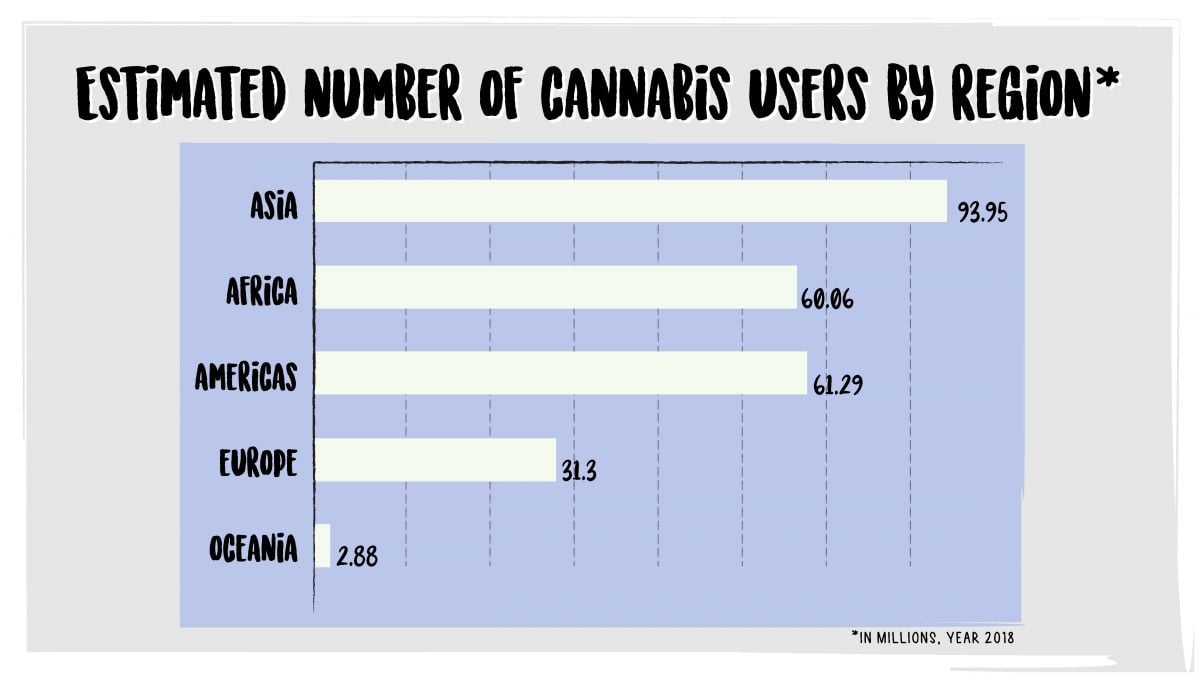
A recent study has found that at least 10 million consumers out of the 250 million estimated number of consumers have tried quitting cannabis at least 5 times and failed; It has not been confirmed yet but researchers think that this happens due to the withdrawal symptoms that are just now researchers are starting to understand. Learn about what happens to your brain when you stop consuming cannabis and the withdrawal symptoms you can expect for the first couple of weeks.
1. The Endocannabinoid System
The endocannabinoid system (or ECS) is a biological system constituted of endocannabinoids, which are neurotransmitters that bind to cannabinoid receptors that are located throughout the central nervous system and peripheral nervous system. There is still ongoing research about the subject but it’s believed that it may be involved in several physiological and cognitive processes such as:
- Appetite;
- Pain-sensation;
- Mood;
- And Memory.
There are two main cannabinoid receptors, CB1 and CB2; These receptors are mainly found in the brain and nervous system, and in organs and tissue, and they are where natural internal cannabinoids (produced by our body) as well as external cannabinoids such as THC and CBD, bind to.
2. Cannabinoid Receptors
The cannabinoid receptors are part of the endocannabinoid system, and are partially involved in the processes mentioned before and many more; These receptors are a type of cell membrane receptors that are activated by three main types of cannabinoids:
| Main types of cannabinoids | ||
|---|---|---|
| Type | Produced | Examples |
| Endocannabinoids | Mammillary body in the brain | Anandamide and 2-AG |
| Plant cannabinoids | Cannabis plants in the trichomes | THC and CBD |
| Synthetic cannabinoids | Man-made in laboratories | HU-210 and THJ-018 |
There are two known subtypes of cannabinoid receptors where all of these cannabinoids can bind to: the CB1 receptor and the CB2 receptor. CB1 receptors are found mainly on the brain (in the central nervous system) but can also be found in the lungs, liver and kidneys, on the other hand, CB2 receptors are found mainly in the immune system, in hematopoietic cells (which are immature cells that can develop into all types of blood such as white blood cells, red blood cells, and platelets) and more recent research discovered that they’re also found in some parts of the brain.
Other Cannabinoid Receptors
Apart from the CB1 and CB2 receptors, the existence of more cannabinoid receptors has been suspected for a long time due to effects that certain compounds produced on blood pressure and inflammation, for example. More recent research supports that there’s the existence of the GPR18 receptors, while other studies have suggested that the orphan receptor GPR55 is, in fact, another cannabinoid receptor due to responding to cannabinoids.
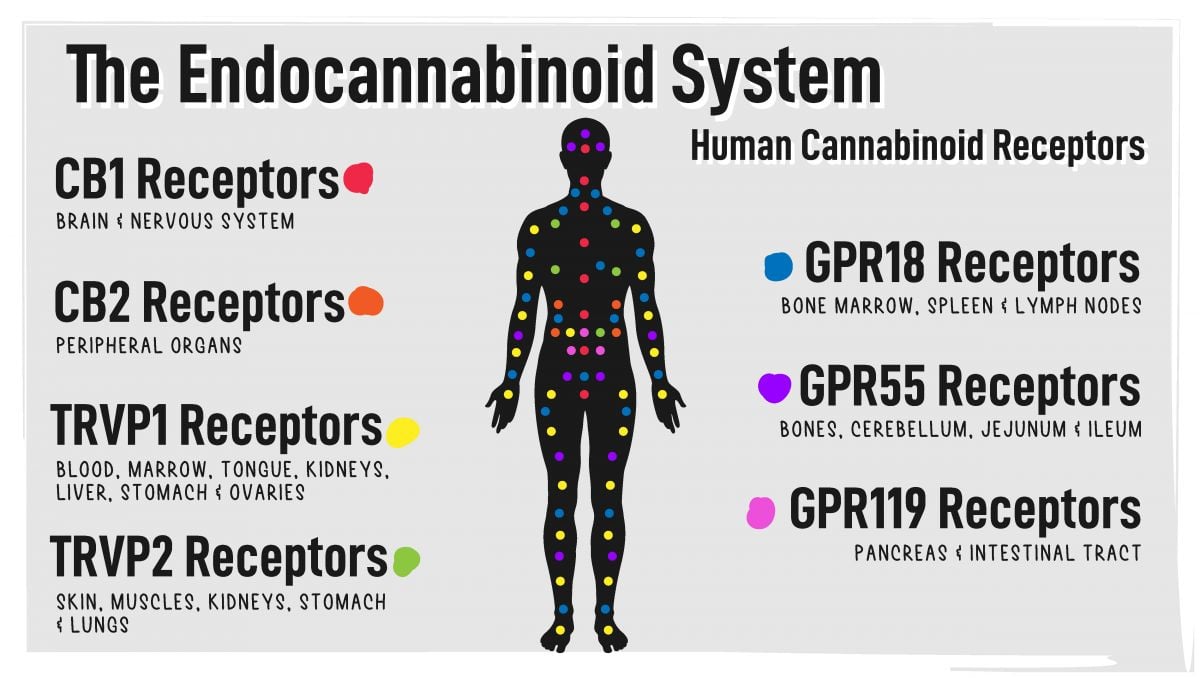
This indicates that there should be a re-classification of the cannabinoid receptors, including a new CB3 category but this may be complicated due to more receptors being discovered in the hippocampus, such as the GPR119, which suggests that there are at least two more receptors and at least two more to be discovered. Now that you know a little bit more about the cannabinoid receptors and the endocannabinoid system, here’s what happens when you stop consuming cannabis.
3. What happens when you stop consuming marijuana?
Most avid cannabis consumers don’t even think about not smoking cannabis, in most cases, consuming cannabis becomes a routine; It doesn’t matter if you consume to relax after a long day of work, or if you’re a medicinal user and need it to alleviate pain or other issues. After a while, you’ll get used to it and your body will too.
| Nausea | Difficulty sleeping | Nervousness |
| Headaches | Sweating | Decreased appetite |
| Depressed mood | Anger | Strange dreams |
In the table above you can see the usual withdrawal symptoms but they will start to appear slowly and not all at the same time so, if you were wondering what would happen if you were forced to stop consuming cannabis due to a business trip, or if you have to go to your parent's house, or if you simply want to stop, here’s what recent research has discovered.
Day 1-2 After Quitting
During the first couple of days after you have stopped consuming cannabis is when the withdrawal symptoms start; A study with more than 20000 people found that around 47% of cannabis consumers had at least three of the following withdrawal symptoms:
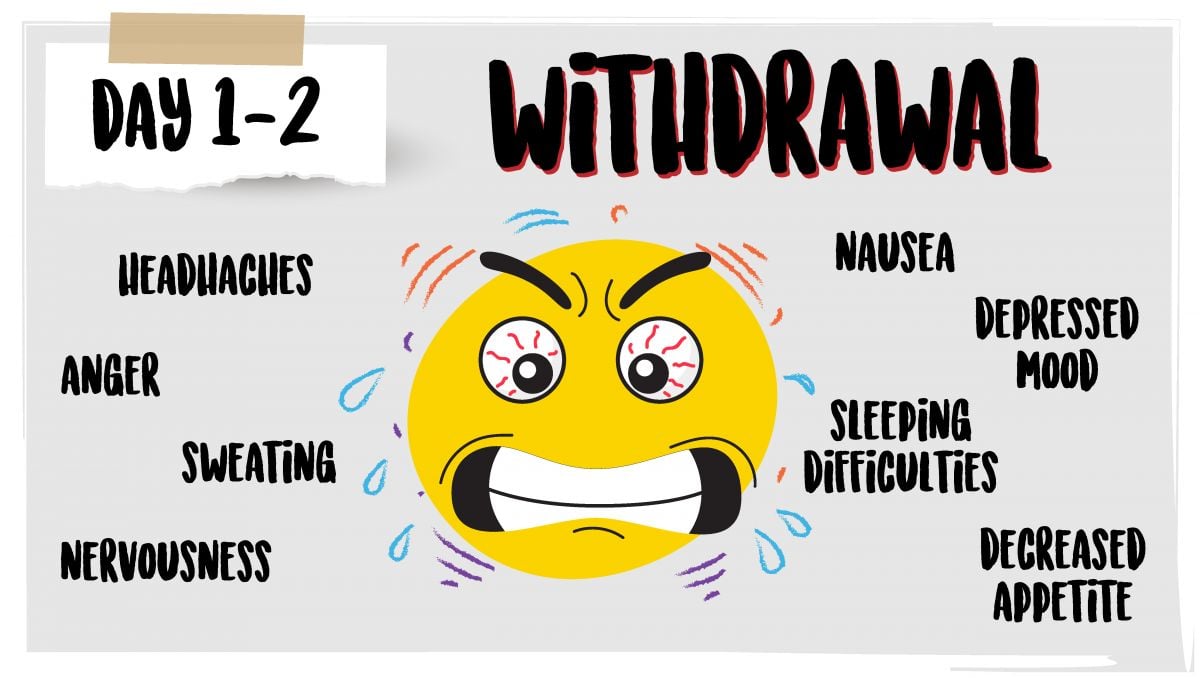
Now, it has been discovered that the risk of presenting these symptoms is related to the amount of cannabis you’ve been consuming, for example, someone that has been consuming only two times a week would have fewer symptoms than someone who consumed cannabis daily.
Day 3 After Quitting
On day 3 is when you will feel more irritated and anxiety can kick in but this will dissipate in a couple of days; On the other hand, the strange dreams and difficulty sleeping will only increase day after day. This happens because cannabis contains molecules similar to the cannabinoids produced by our brain such as Anandamide, these natural cannabinoids usually circulate in lower quantities and your body is used to it but when consuming cannabis, you’re basically consuming way more than what your brain naturally produces. When you consume cannabis, these high levels of cannabinoids bind to certain parts of your body which causes thoughts, imagination, and perception to magnify and also affect dopamine and norepinephrine, which can lead to anxiety and euphoria.
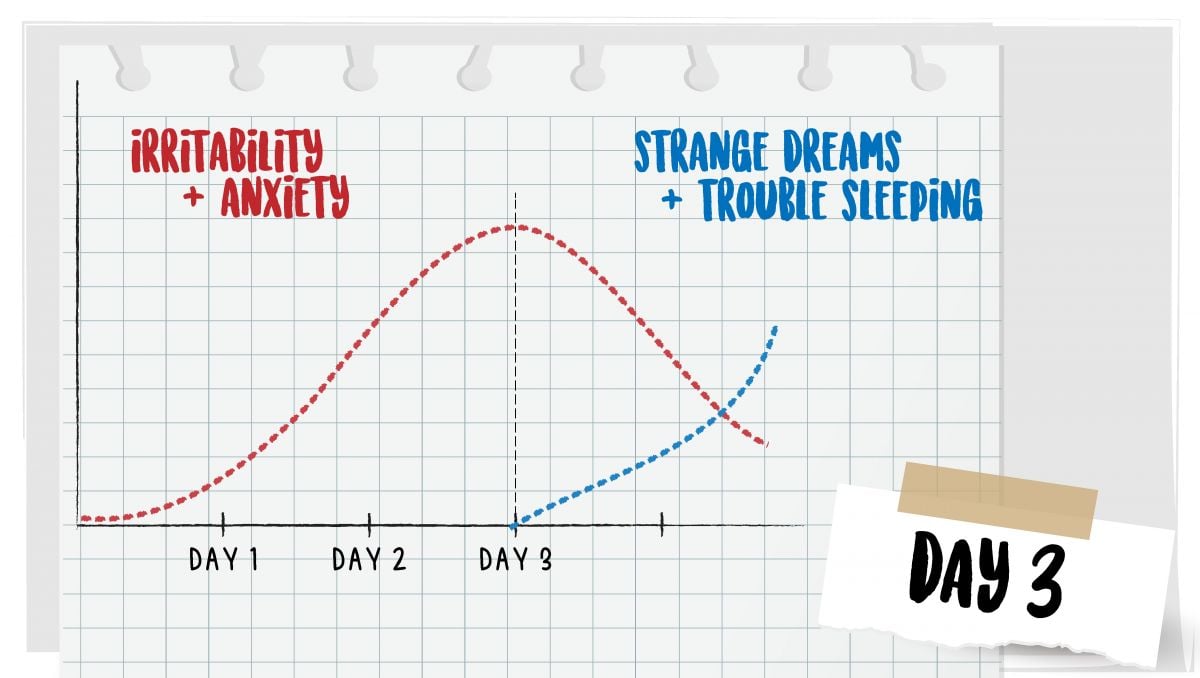
Also, due to affecting dopamine and norepinephrine, you may feel that mundane tasks such as doing laundry feel more exciting but the feeling will also dissipate once you stop consuming cannabis, making it harder to stop smoking. As you continue to consume cannabis, your body starts creating desensitization of the receptors, and since the receptors regulate short-term memory, can also cause a decrease in short-term memory so as your body gets rid of the excess cannabinoids in your body, your memory will start to improve.
Day 4 After Quitting
On day 4 of quitting, the cannabinoid receptors will most likely go back to normal but there isn’t much research about the long-term effects in your brain so this may vary depending on how much and how long you’ve been smoking cannabis.
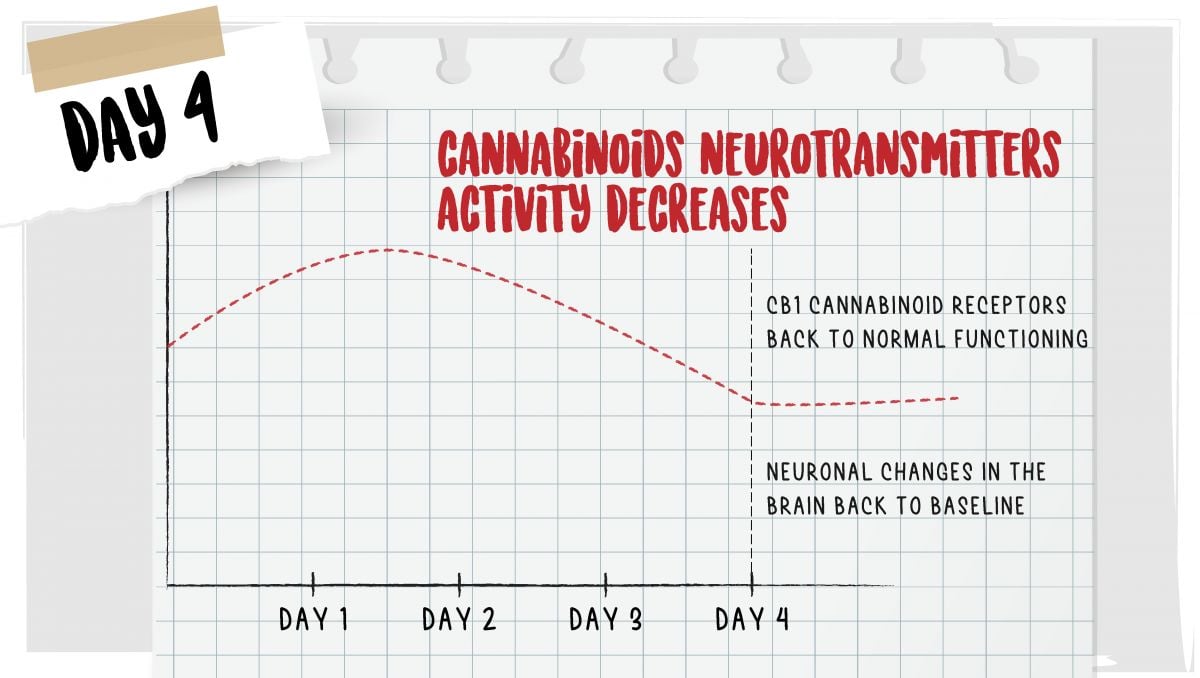
This happens because the age of your brain matters and it will react differently. For example, if you have been smoking since you were a teen the effects on your brain will be different from those who have started smoking for a couple of years, although this is not confirmed, it’s what researchers suspect.
Day 5-7 After Quitting
It’s said that day 5-7 is the hardest for those who have been consuming cannabis for a long time, this happens because your body (and brain) gets used to it, and you end up creating a dependence which researchers find is less severe than alcohol dependence, for example, but it’s still an issue that causes most consumers to not be able to stop consuming cannabis.
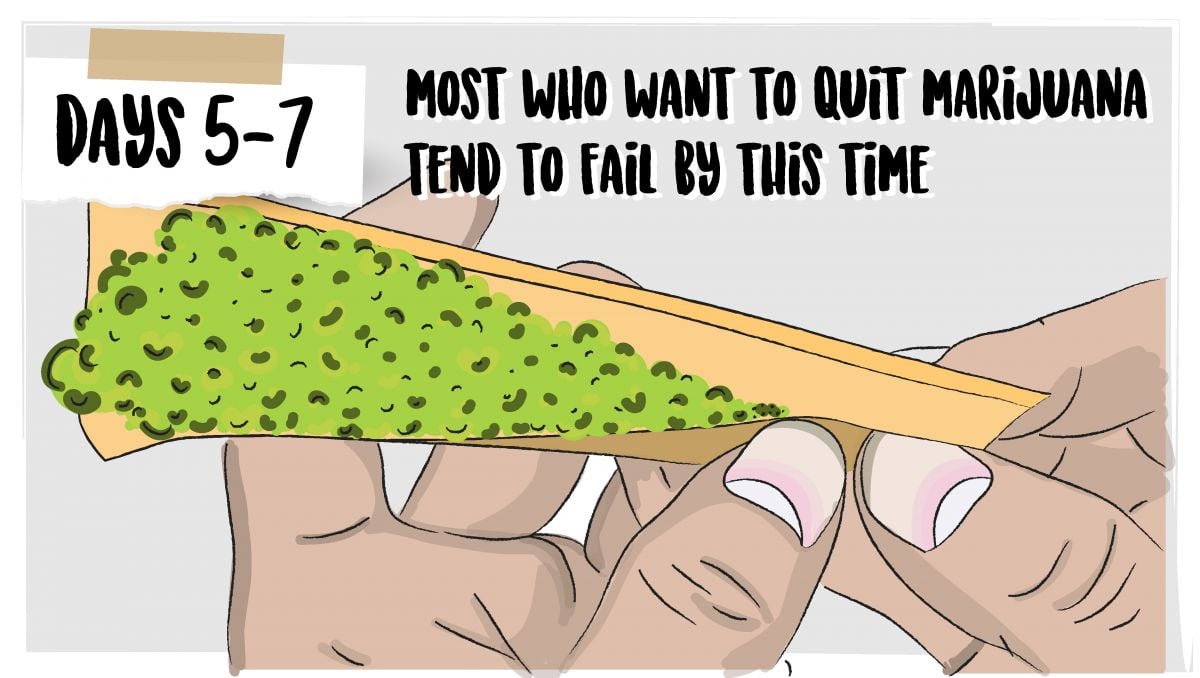
Now, bear in mind that this information only refers to the effects on the brain; There are still long-lasting effects on the lungs if your preferred method of consumption is smoking, which is more harmful than vaporizing cannabis, for example, and this will vary according to the quality of the cannabis itself and how you consume it.
Day 7-28 After Quitting
If you make it past the 7 day mark, it’s most likely that all the withdrawal symptoms disappear; The receptors and the entire cannabinoid system will return back to normal and the next time you consume cannabis, it will feel like the first time again. This may vary from each individual person but, in general, this is what would happen. Remember that this only refers to your brain, damage done due to the smoke or other types of consumption are not taken into account, this is solely what happens to the cannabinoid system in your brain!
4. In Conclusion
Despite cannabis not being seen as a drug that can get you addicted, you can definitely create a dependence due to how the cannabinoids interact with your brain. This isn’t as bad as the withdrawal symptoms you would get when you stop consuming harder substances but it’s something that everyone should be aware of. If you want to stop consuming cannabis and you cannot, it’s essential that you seek help because despite being relatively harmless, it can affect your sleep and mood among other things. Remember that cannabis should be used as a complement to make your life easier and not make it harder for you.
If you have any tips and tricks for fellow consumers that need to stop consuming cannabis for a couple of days (or weeks) feel free to leave a comment in the comment section below!
External References
- Time-course of the DSM-5 cannabis withdrawal symptoms in poly-substance abusers. - Morten Hesse and Birgitte Thylstrup.
- Cannabis Withdrawal in Chronic, Frequent Cannabis Smokers during Sustained Abstinence within a Closed Residential Environment. - Dayong Lee, Jennifer R. Schroeder, Erin L. Karschner, Robert S. Goodwin, Jussi Hirvonen, David A. Gorelick and Marilyn A. Huestis.
- Cannabis Addiction and the Brain: a Review. - Amna Zehra, Jamie Burns, Christopher Kure Liu, Peter Manza, Corinde E Wiers, Nora D Volkow and Gene-Jack Wang.








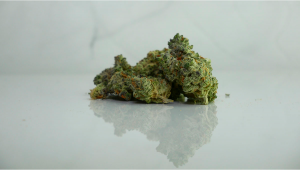
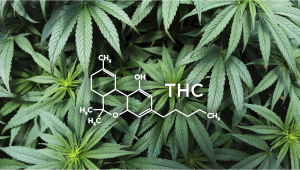
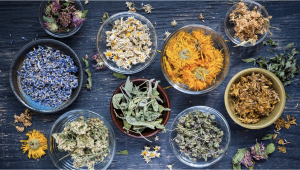


Comments